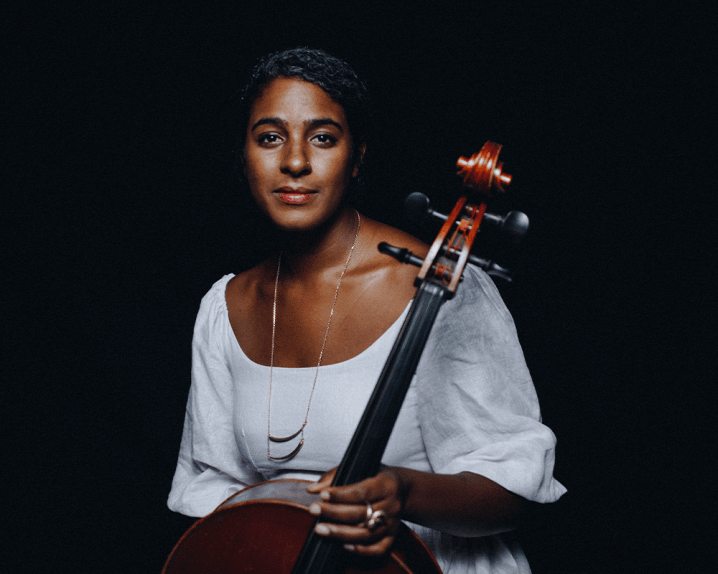
Leyla McCalla Announces Moving New Album Inspired By Radio Haiti Titled ‘Breaking The Thermometer’
Haitian-American artist Leyla McCalla draws upon her experience as a bilingual multi-instrumentalist and New Orleans resident to create distinctive music that reflects both her past and present. Today she announces Breaking The Thermometer, her first album for ANTI- Records that will be released on May 6.
In 2016 Duke University acquired the archives of Radio Haiti, the first independent radio station to report the local news there in Haitian Kreyol. Active from 1957 to 2003, the station became a hub of Haitian politics, society and culture.
Upon acquiring the archives Duke commissioned McCalla to create a multi-disciplinary theater project with them, which became Breaking The Thermometer. The album combines original compositions and traditional Haitian tunes with historical broadcasts and contemporary interviews to forge an immersive sonic journey through the tumult of social and political unrest in late 20th century Haiti.
“While many of the songs on the album are inspired by the listening that I have done in the archive, much of the album is deeply self-reflective - integrating experiences that I have had navigating life as a child both in the US and Haiti, my journey in claiming my Haitian-American identity and understanding the experiences, sacrifices and challenges overcome by my immigrant relatives,” McCalla explained.
Today she has shared a video for the new song “Vini Wè”, a track inspired by the love story of Radio Haiti station owner and journalist Jean Dominique and his wife and fellow journalist Michéle Montas. Putting themselves in harm’s way every day for the right to a free and independent press, Dominique was assassinated at the station in 2000, alongside his security guard Jean-Claude Louissant. Directed by Zuri Obi, watch the video below.
“Vini Wè”: https://youtu.be/qYmR0vkfEGE
“I also felt that this collection of songs needed moment to acknowledge the possibility and hope that love can offer us, despite what the world throws at us. Vini Wè Soley Leve - means come see the sunrise,” McCalla said of the song.
The music of Breaking The Thermometer is captivating, fueled by rich, sophisticated melodic work and intoxicating Afro-Caribbean rhythms, and the juxtaposition of voices—English and Kreyòl, personal and political, anecdotal and journalistic—is similarly entrancing, raising the dead as it shines a light on the enduring spirit of the Haitian people. McCalla isn’t just some detached observer here, though; she writes with great insight and introspection, examining her own personal journey of growth and self-discovery as she uncovers the Radio Haiti story as well as the broader understanding of what Democracy and unalienable human rights means to each of us, no matter where we’re from.
Born in New York City to Haitian emigrants and activists, McCalla developed an early fascination with the country and its culture thanks in part to the time she spent visiting her grandmother there as a child. An alumna of Grammy award-winning African-American string band the Carolina Chocolate Drops and the 2019 project Our Native Daughters, McCalla has also received considerable praise and attention for her solo works, including 2014’s Vari-Colored Songs: A Tribute to Langston Hughes, which prompted the New York Times to rave that “her voice is disarmingly natural, and her settings are elegantly succinct.” Two more similarly celebrated releases followed, 2016’s A Day For The Hunter, A Day For The Prey and 2019’s Capitalist Blues.
After being approached by Duke University to create Breaking The Thermometer, McCalla had the opportunity to interview the co-creator of Radio Haiti and widow of Jean Dominique, Michéle Montas, for the project.
“I remember confessing to Michèle that I wasn’t really sure I should be the one to tell this story,” says MCalla. “I was born in America, after all, and I’m an artist not an academic. But Michèle said, “Why wouldn’t you be the one to tell this story? There are so many Haitian-Americans just like you who are still attached to the country in some way, who are still looking for their roots. This is exactly what you need to be doing.’”